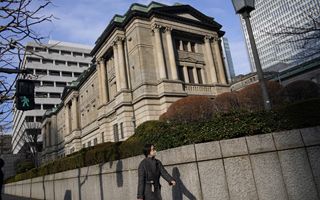(Finance) – The Bank of Japan (BoJ) by Kazuo Ueda has put an end to the era of negative rates, raising interest rates for the first time since 2007. The cost of money thus went from -0.1% to the range between zero and 0.1%.
Stop yield curve control
The BoJ also announced the progressive abandonment of the yield curve control (YCC – Yield Curve Control) of Japanese government bonds with a maturity of 10 years, adopted in 2016 together with the negative rate formula, and the interruption of the massive purchases of risky assets such as exchange-traded funds (ETFs).
Also announced gradual reduction in corporate bond purchasesdestined to be discontinued within a year.
This historic turning point in the monetary policy of the central committee, which saw a vote of 7 members in favor and two against, formally puts an end to the era of former governor Haruhiko Kuroda starting from 2013, and marks the beginning of a normalization of the ultra-expansionary monetary policy, albeit gradual, due to the uncertainty that remains regarding the prospects of reaching the 2% inflation target.
